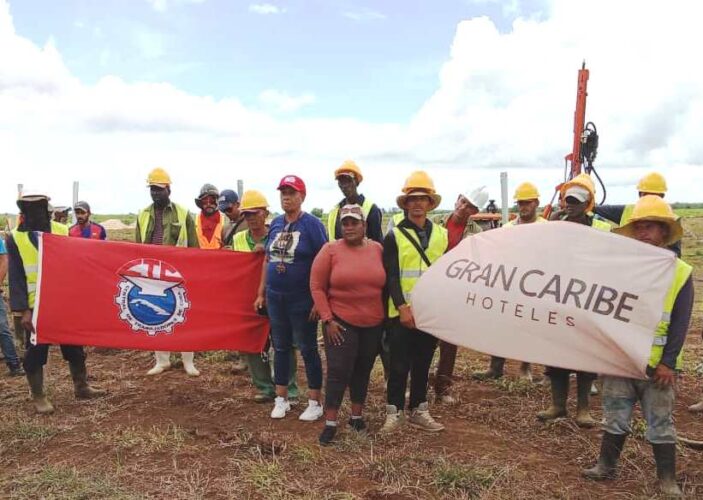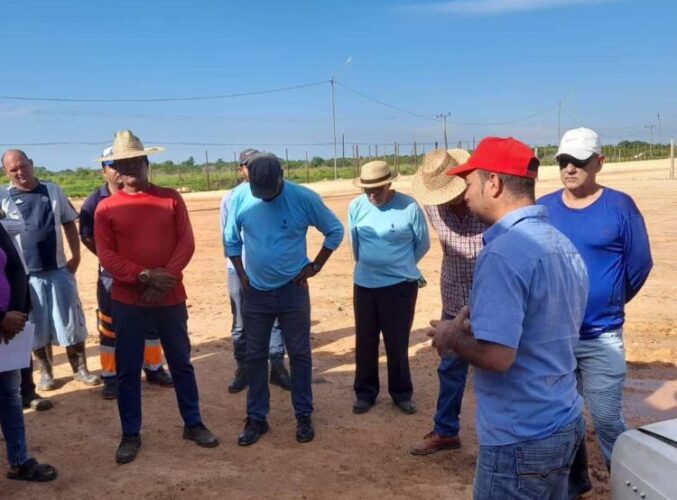Summoned by the Provincial Committee of the Central de Trabajadores de Cuba (CPCTC) as a greeting to the 22nd Congress of the trade union organization, labor collectives from several ministries, such as Tourism and Industry in Matanzas, are supporting in different ways the Jovellanos II Photovoltaic Solar Park, which will have a capacity of 21.87 megawatts (MW).

In its civil execution phase is the investment, with the imprint of men and women from Varadero Hotels and the subsidiary company Suchel Jovel, who frequently arrive to encourage the forces committed to meet the execution schedules.
Rogelio Leyva Castellanos, head of the Economic Area of the CPCTC, praised the gesture of the representatives of these and other sectors that are often present in this area of Jovellanos with various items to collaborate with the best attention to the builders.
Leyva highlighted the emulation movement promoted at the Photovoltaic Solar Park, which has a high point on Fridays with check-ups where the workers with the best performance during the week are rewarded.

The union leader recalled that this type of collaboration has its antecedents in the usual support given to the sugarcane workers’ platoons in support of the 2023/2024 sugarcane race, which, he added, «confirms the solidarity of our people.»
With the intention of synchronizing it before the end of 2024, work on the Jovellanos II Photovoltaic Solar Park is being carried out by members of the Provincial Electricity Company, the 28th Construction Brigade, Cubiza, the Architecture and Engineering Projects Company and the National Applied Research Company, among others.
Matanzas aims to reach an installed capacity of 65.95 MW in this type of renewable energy, as part of a program that includes the two existing plants in the municipality of Cárdenas and two more planned for this year.
Investments approved for the Yumurino area, key to the country’s productive structure, include Cuba’s intention to install 92 photovoltaic solar farms by 2028 with a capacity of 2,000 MW (over 20 MW each).
This will make it possible to move towards sovereignty, which will mean stopping the import of 750,000 tons of fuel, announced the Minister of Energy and Mines, Vicente de la O Levy, to the Granma newspaper in March of this year.